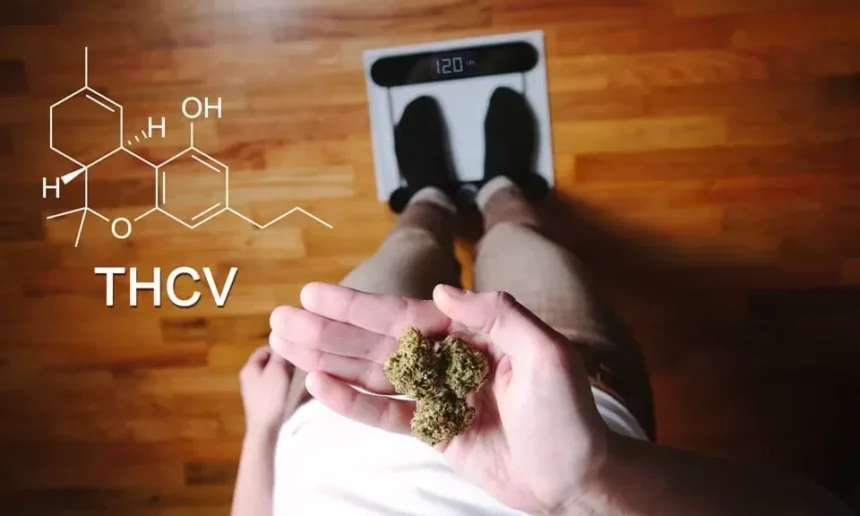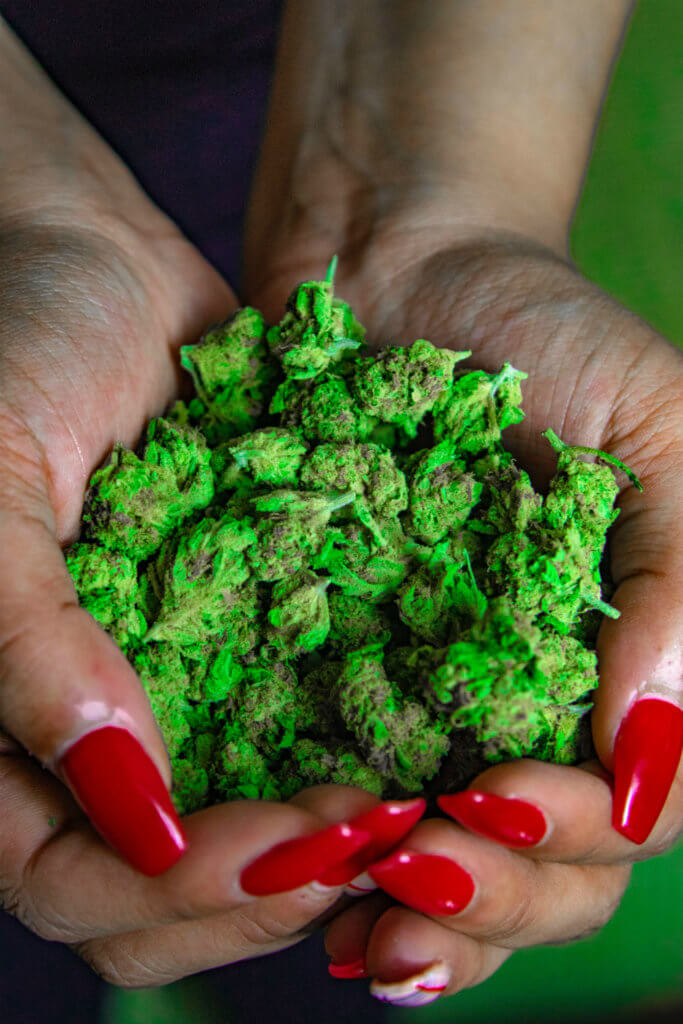The history of marijuana use dates back hundreds of years and today, it’s become an increasingly popular topic around the world because of growing awareness of the plant’s incredible medicinal benefits.
And with more research being conducted, Tetrahydrocannabinol (THC) seems to be receiving all the attention. But there’s one hidden gem cannabinoid that you may not have heard about — it’s THCV.
Tetrahydrocannabivarin (THCV) is an equally important cannabinoid on the scene that potentially offers psychoactive effects, along with therapeutic potential.
But, what is THCV and how does it compare to the other cannabinoids, like THC and CBD? Also, how can you find it? And what are its medical benefits?
Read further as break down the answers to all your what is THCV questions.
What is THCV and THC: How are they different?
The marijuana plant is made up of hundreds of chemicals, with the most important ones being phytocannabinoids. There are over 100 of them and you have probably heard of tetrahydrocannabinol (THC) and cannabidiol (CBD).
And one of the lesser-known cannabinoids, with a potential too great to be overlooked, is tetrahydrocannabivarin (THCV). Just by looking at the name, you would guess that it’s similar to THC and you would not be far from the truth. Their chemical structure is almost the same, but the only difference is a group in the side chain.
THCV has a different chemical structure
To explain, while THC has a pentyl group, THCV has a 3 carbon propyl group attached to the side chain of the molecule. They both modulate the body’s endocannabinoid system by activating or suppressing specific receptors called cannabinoid receptors 1 and 2 (CB1 and CB2). A lot of CB1s is located in the brain and the nervous system.
THCV has no ‘high’ in small doses
THC acts as what is called an agonist of CB1, a complicated word that only means that it activates receptors in the brain and causes the famous marijuana ‘high’. THCV is different.
In lower doses, THCV works as an antagonist of CB1 receptors, meaning it does not produce a high. As an antagonist it suppresses the activity of the receptor in the brain which prevents the user from achieving the psychoactive effect.
But in higher doses, however, THCV starts producing a high, but it isn’t the exact same experience THC provides.
Although you can get high more quickly, THCV doesn’t last as long as THC and it doesn’t have the same intensity on its own.
THCV minimizes THC’s negative effects
Similar in chemical composition to THC, THCV in combination with THC helps increase the positive effects like euphoria, while minimizing the negative effects, like the increased heart rate, anxiety, paranoia and the ‘munchies’ (for some).
To elaborate, THCV in small amounts acts as an antagonist to some of the effects of THC. In higher amounts, THCV is thought to heighten THC’s effects. For example, this study showed THCV inhibited some of the well-known effects of THC, while potentiating others. THCV and THC working together is a prime example of the ‘entourage effect’ at work!
If you’re confused as to how consuming THCV will feel like, don’t fret, this will be explored more below, but for now, since the differences between THC and THCV are cleared, let’s move on to THCV’s medical use.
What are THCV’s Medical Benefits?
THCV might help with weight loss
Reducing the munchies is what THCV is probably most famous for. With obesity numbers increasing around the world, people are starting to look for alternative weight loss strategies.
Research studies have shown that by modulating cannabinoid receptors in the GI tract, THCV can help overweight individuals manage their food intake by suppressing the appetite and reducing that gratifying feeling that we get after eating a delicious meal.
THCV might help with diabetes
THCV is potentially very useful for people struggling with obesity, because not only can it assist with the weight loss, it may also help their diabetes as well. A study from 2013concluded that this cannabinoid can have a positive effect on glucose intolerance and insulin sensitivity. This makes it easier for glucose to enter insulin-dependent cells in the body, thus reducing hyperglycemia (high blood sugar).
Research also shows promise in THCV’s ability to regulate blood sugar levels and reduce insulin resistance. This study also found that “THCV could represent a new therapeutic agent in glycemic control in subjects with type 2 diabetes”, which warrants further investigation in this area.
THCV might help with Parkinson’s
When it comes to the devastating Parkinson’s disease, research on THCVshows promising results for alleviating symptoms and offering neuroprotective effects in animal models of Parkinson’s disease.
THCV has antioxidant properties
Given its antioxidant properties and THCV’s ability to activate CB2 but to block CB1 receptors, THCV has a promising pharmacological profile for delaying the disease’s progression and for ameliorating symptoms.
Talk about incredible.
Where Can I Find THCV? High THCV Strains
THCV is found mostly in sativa strains of cannabis. And there are some strains that are specifically created with high levels of THCV. Here’s a list of high THCV strains:
- Doug’s Varin
- Cherry Pie
- Face of OG
- Durban’s Poison
- Girl Scout Cookies
- Pineapple Purps
- Jack the Ripper
Of course, you should always ask your local shop what strains are best because cannabinoid content can vary from harvest to harvest.
How Can I Consume THCV?
You can use a vaporizer to smoke it, or make edibles to get THCV in your system.
If you’re using a vaporizer to smoke it, be aware that the boiling point of THCV is different from THC. THCV’s boiling point is 428°F ( 220°C), a massive 114 degrees higher than THC. This means if you’re making edibles with THCV, you can make them at a much higher temperature.
What is THCV’s Experience Like?
Because THCv activates the CB1 and CB2 receptors of the body, it effectively blocks THC and does the complete opposite of what THC does, however, you do feel a euphoric effect in high doses.
This means high THCV strains or products may result in a stimulating, clear-headed, almost psychedelic type of energetic high that’s typically shorter in duration. Instead of feeling completely hungry and euphoric, instead, THCV will suppress your appetite and stop you from getting those crazy munchies that THC is famous for, which can be particularly helpful for those struggling with weight loss!
Not to mention being helpful for type 2 diabetes, because of its role in impacting the production of beta cells, which make insulin, being a major cause in obesity.
Final Thoughts on What is THCV
More and more research studies are being conducted on THCV and marijuana in general, with the aim of discovering its many potential medicinal properties and trying to change the traditional view that the plant is bad for us.
That progress has been slow, with only a handful of countries legalizing its use, but we should not feel discouraged, especially after exploring all the benefits of compounds like THCV helping with obesity, type 2 diabetes and Parkinson’s. Overall, the future looks promising for THCV!
















